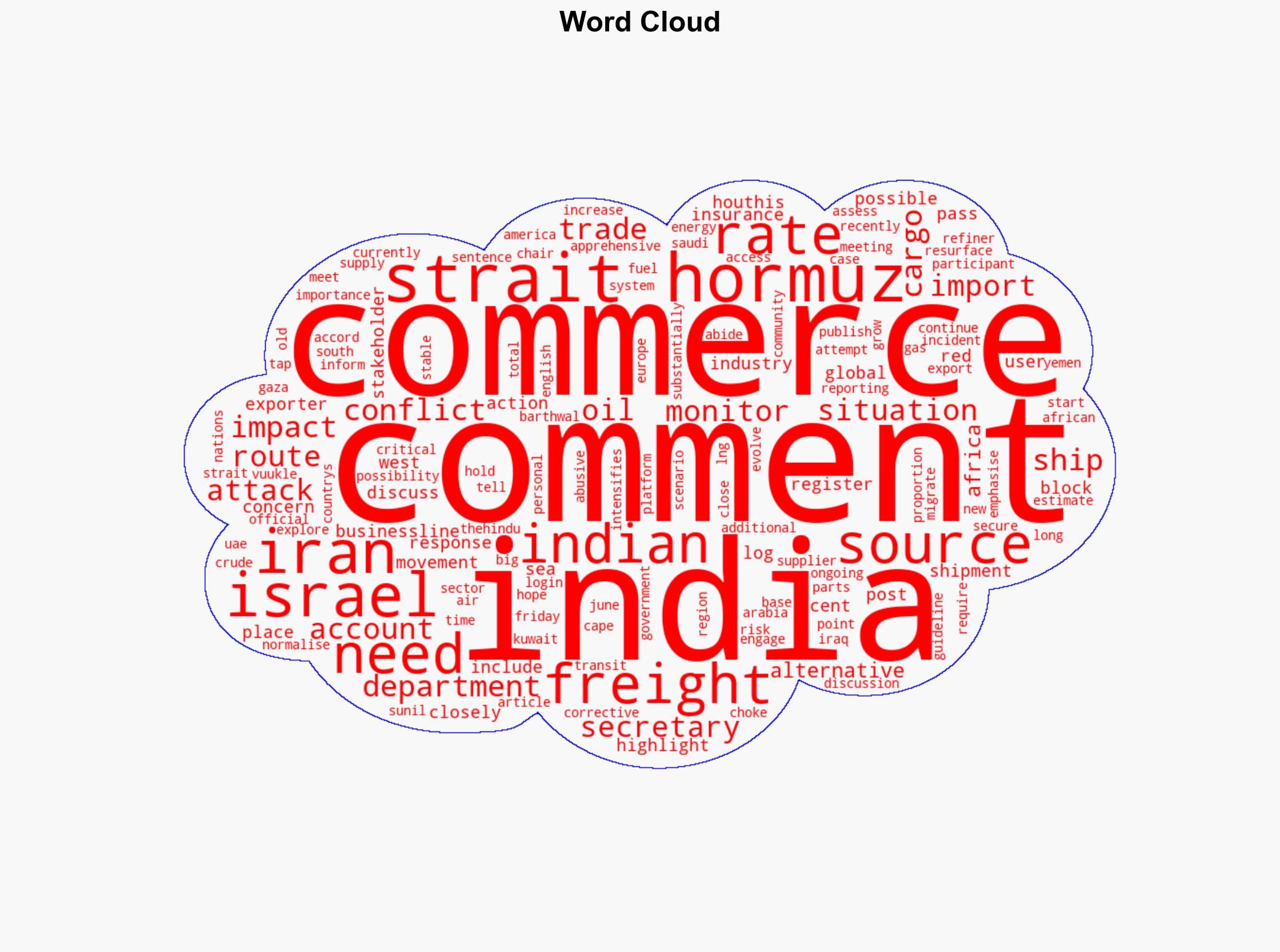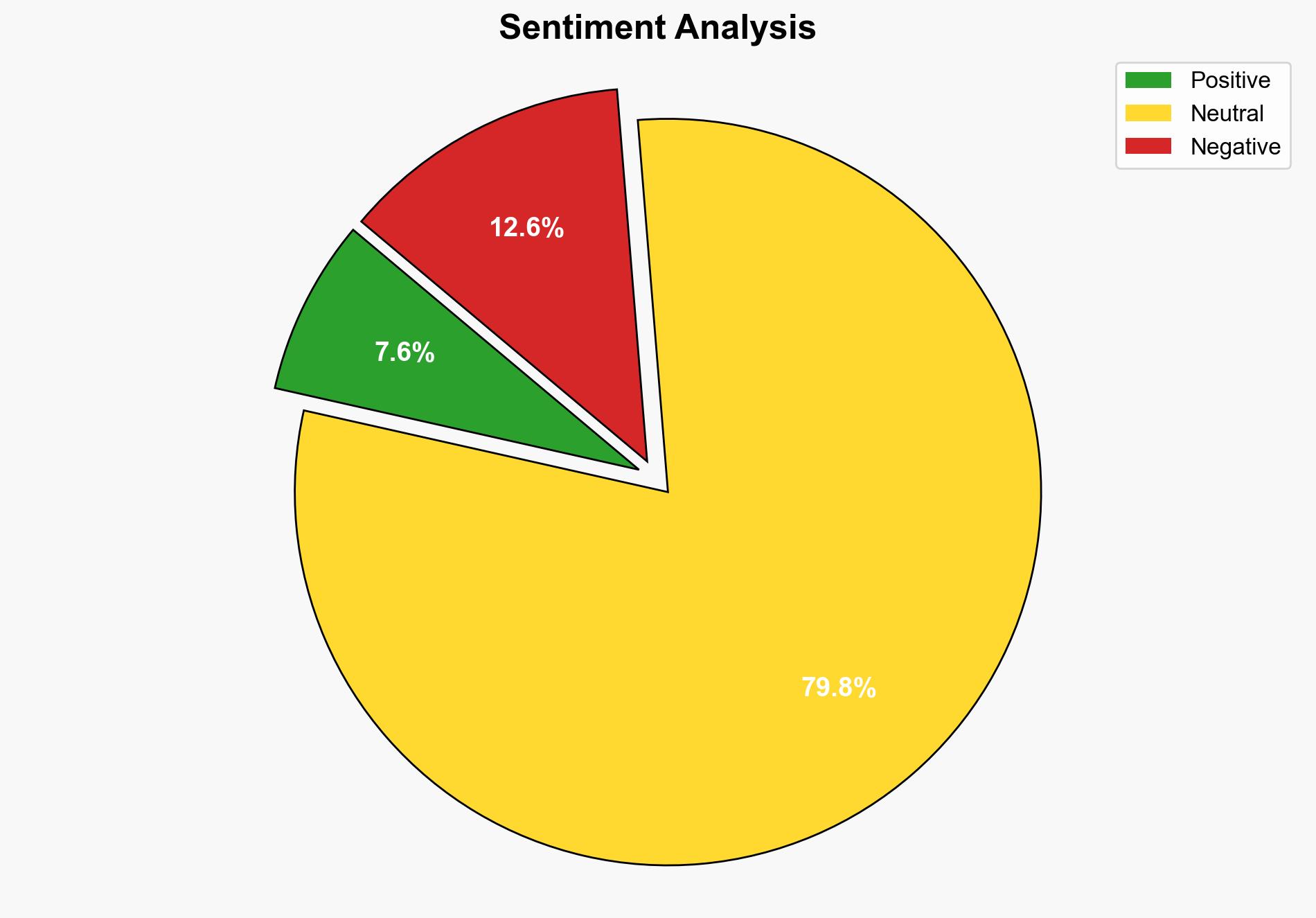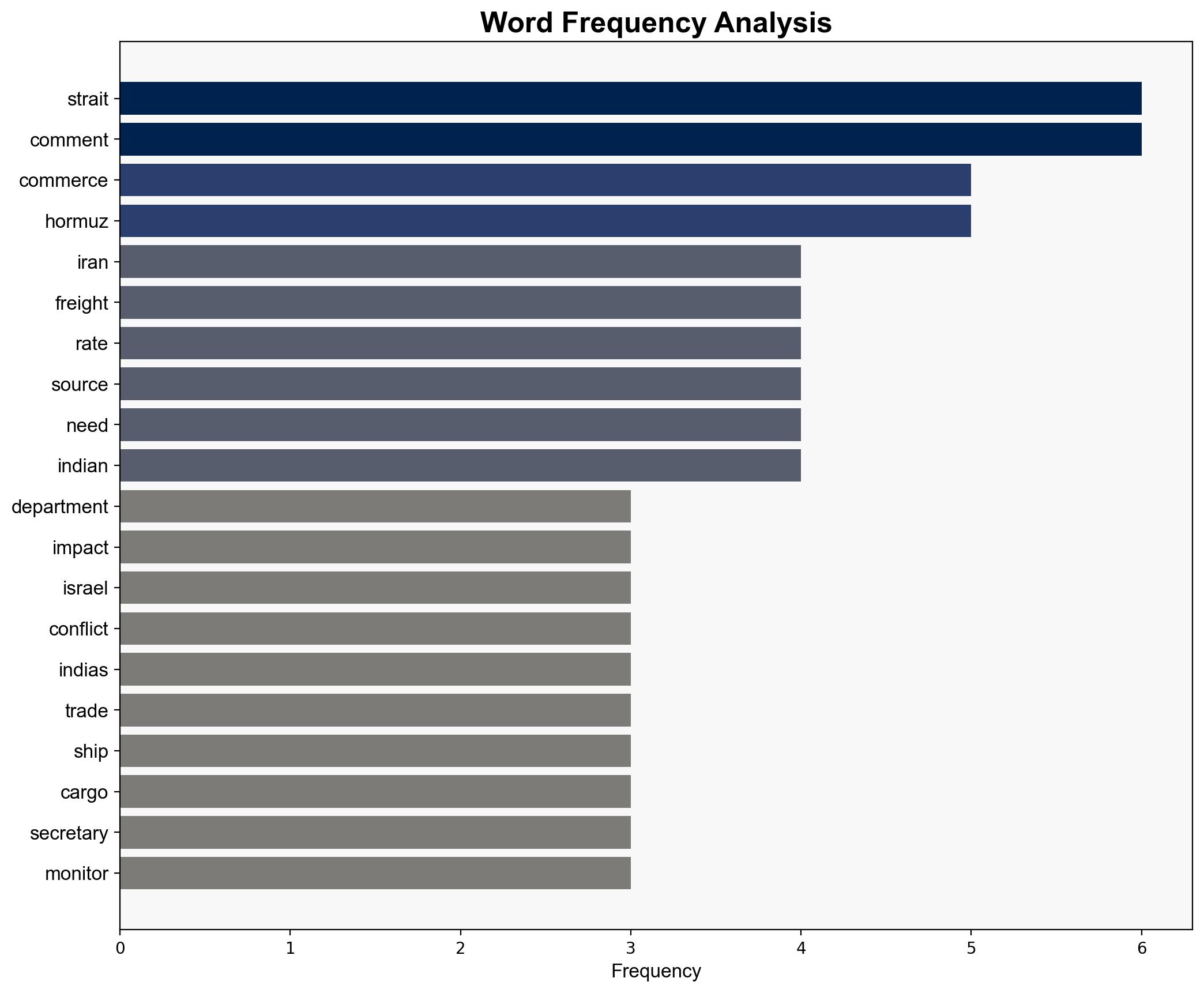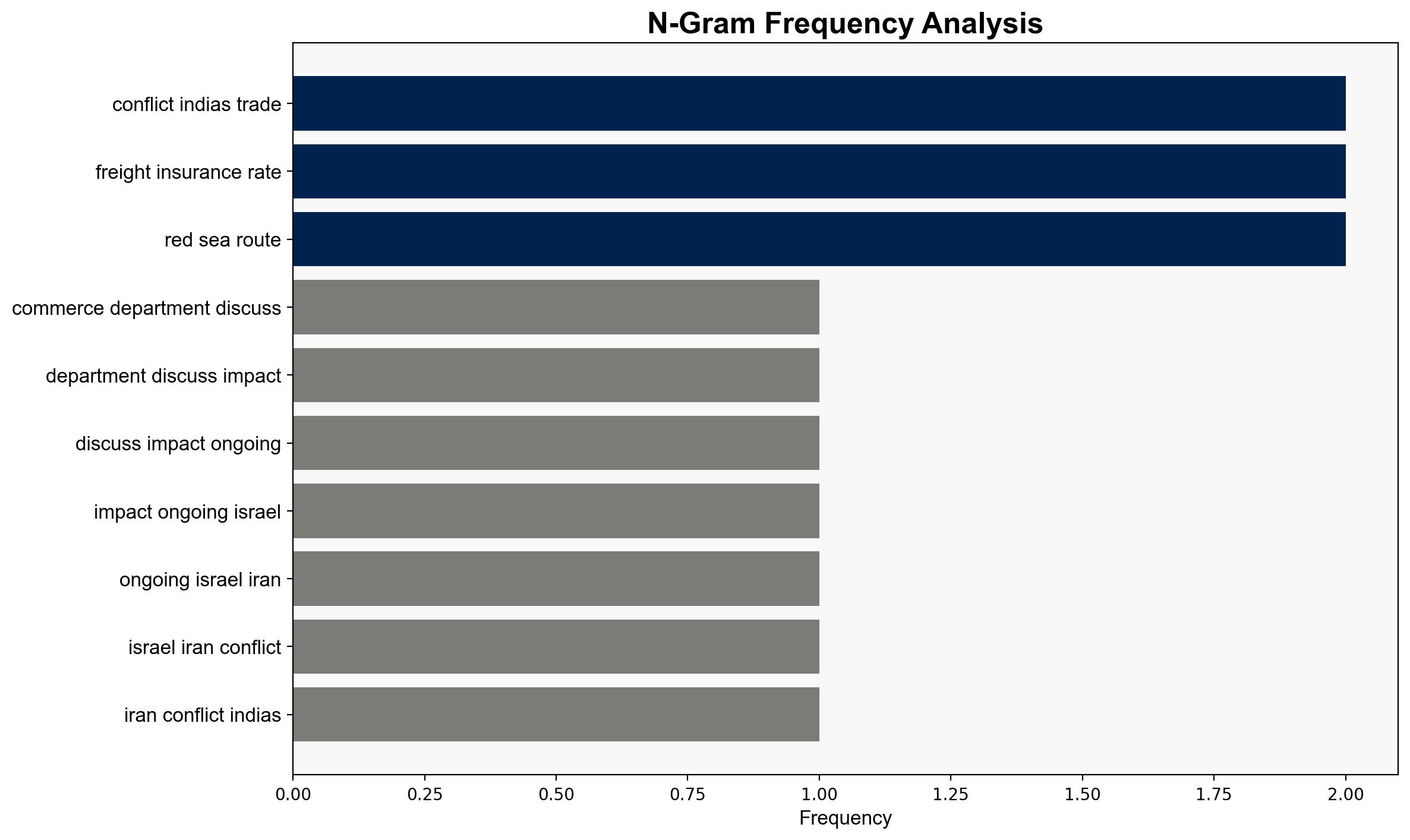Commerce Secretary discusses Israel-Iran conflict impact with shipping air cargo sectors – BusinessLine
Published on: 2025-06-20
Intelligence Report: Commerce Secretary discusses Israel-Iran conflict impact with shipping air cargo sectors – BusinessLine
1. BLUF (Bottom Line Up Front)
The ongoing Israel-Iran conflict poses significant risks to India’s trade, particularly affecting freight and insurance rates. The stability of the Strait of Hormuz is crucial, as it is a major transit route for India’s oil imports. The Commerce Secretary emphasizes the need for monitoring and potential corrective actions to mitigate disruptions. Alternative routes and suppliers are being considered to ensure continuity in trade and energy supply.
2. Detailed Analysis
The following structured analytic techniques have been applied to ensure methodological consistency:
Causal Layered Analysis (CLA)
Surface events: The conflict between Israel and Iran is impacting regional trade dynamics.
Systemic structures: The Strait of Hormuz is a critical chokepoint for global oil transit.
Worldviews: The geopolitical tensions influence regional stability and economic dependencies.
Myths: Historical animosities and power struggles shape current narratives and actions.
Cross-Impact Simulation
The closure of the Strait of Hormuz could lead to increased shipping costs and rerouting through alternative paths, affecting global oil prices and trade flows.
Scenario Generation
Best case: The conflict de-escalates, maintaining the stability of trade routes.
Worst case: Escalation leads to the closure of the Strait of Hormuz, severely disrupting oil supply chains.
Most likely: Continued tensions with sporadic disruptions, prompting strategic adjustments.
Bayesian Scenario Modeling
Probabilistic assessments suggest a moderate likelihood of temporary disruptions, with a lower probability of prolonged closures.
3. Implications and Strategic Risks
The potential closure of the Strait of Hormuz presents a significant risk to global oil supply, impacting energy security and economic stability. Indian exporters face increased costs and logistical challenges. The Red Sea route’s vulnerability to attacks further complicates trade security.
4. Recommendations and Outlook
- Enhance monitoring of geopolitical developments in the Middle East to anticipate disruptions.
- Develop contingency plans for alternative trade routes and suppliers, focusing on West Africa.
- Engage in diplomatic efforts to promote regional stability and secure trade interests.
- Scenario-based projections:
- Best case: Strengthen diplomatic ties to ensure open trade routes.
- Worst case: Invest in strategic reserves and diversify energy sources.
- Most likely: Implement adaptive logistics strategies to manage intermittent disruptions.
5. Key Individuals and Entities
Sunil Barthwal
6. Thematic Tags
national security threats, trade disruptions, geopolitical tensions, energy security





